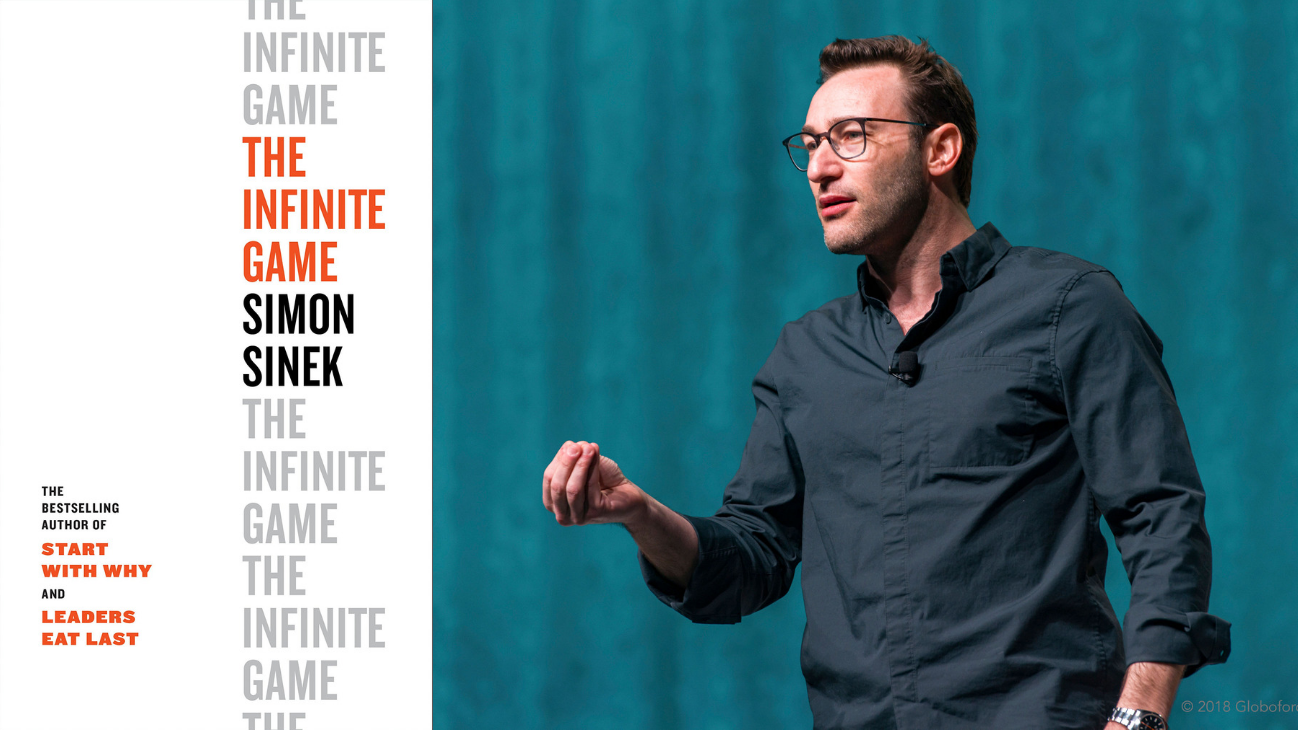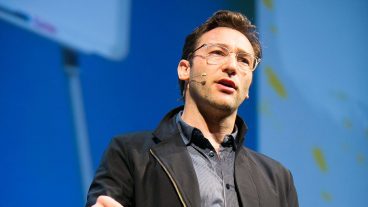Running a business is a journey without a final destination, says renowned leadership expert Simon Sinek in his new bestselling book, The Infinite Game. He argues that the goal behind a successful business shouldn’t be about winning, instead it should focus on the opportunity to keep playing. This allows an organization to long outlast its leaders, and is only possible when leadership adopts an infinite mindset.
Simon spoke with Inc. about what an infinite mindset entails and how it can be adapted by leaders everywhere.
Inc.: The operational principle in your first book is the “why.” In this new work it is the “just cause.” How are they different?
Simon Sinek: The difference between the “why” and the “just cause,” which is the first practice of the infinite game, is that the why comes from the past. It is the sum total of who we are. It is objective and it never changes and we have only one of them. The just cause is a vision of the future. It is subjective and changeable, and you can have more than one. The infinite game is less about where we come from and more about where we are going, and understanding the world in which we operate.
…
If you’re an entrepreneur playing an infinite game, can you work only with investors playing the same game? I would imagine that decreases your chances of funding.
I’ve had this question so many times from CEOs. My investors are putting pressure on me to do what I know is the wrong thing. Well, we get to choose whom we take money from. And if that means there are fewer options because there are fewer infinite-minded investors out there, then so be it. We can also take less money from these people, so that their clout is diminished. Nothing comes for free.
What role do metrics play in an infinite game company?
There is nothing wrong with traditional metrics. But they are a measure of speed and distance. How fast we are growing and how far we have gone. Too many companies — especially smaller companies — get obsessed with hypergrowth. Who said that growing fast was a good thing? Is that healthy? Growth should be a dial, not an absolute.
Here’s an example: There is a retail operation with the ambition of opening 2,000 stores in a year. They want to prove that they are hypergrowth. The problem is they are not hiring good people and taking time to train them. So, in all the stores they open, people have a terrible experience, and those stores will eventually start closing. Versus slowing down and opening 200 stores that are absolutely fantastic. Hypergrowth can actually weaken a company.
If you are trying to create an infinite-minded culture, how do you reward finite wins, which you still need?
An infinite game is not the absence of a finite game: It is the context in which the finite game exists. And the traditional metrics still have value. But they can’t be unbalanced. I am a big believer in team incentives. And also include behaviors other than performance. Things like trust, cooperation, and teamwork should also be considered in people’s compensation.
Sales, presumably, is the toughest place to embed an infinite mindset.
Of course. We should create an environment in which making the sale alone is not what guarantees the bonus. I met a company that does something they call 50-50 bonuses. Your contribution to revenue is 50 percent, and your contribution to culture is 50 percent. So, if all you are doing is driving sales, you will get 50 percent of your bonus. If all you are doing is walking around checking on people, you will get 50 percent. It takes an infinite-minded leader to want to do that.
Infinite-minded CEOs make true partners of their COOs and CFOs. If the three of you are founding a business together, how would you structure that relationship for optimal results?
It is one of the biggest and most frequent mistakes I see. The person who wants to run the company, who wants the big job and the responsibility, is usually given the CEO job. Visionaries who are not that ambitious take the secondary role. You then have an operator sitting in the visionary position. That’s why I suggested this new title of Chief Vision Officer, which doesn’t have the baggage that the CEO title has. The CVO should be the true visionary of the company. The person who is going to run the day-to-day should be the COO.
How does playing an infinite game affect how leaders deal with failure?
It allows them to take everything more in stride. There is a wonderful Chinese story of a young man who is born with an amazing talent for horse riding. Everyone in the village says you are so lucky. The monk says, we’ll see. The young man falls off his horse and breaks his leg, and his career is over. And everyone in the village says, you are so unlucky. The monk says, we’ll see. And then war breaks out, and all the young men go off to battle. But this young man can’t go because of his busted leg. And everyone in the village says you are so lucky. The monk says, we’ll see.
This is a journey. If we look back at our lives and some of the trials and tribulations we have been through, rarely will we say we want to go through them again. But we learned something from them. And we became better versions of ourselves because of them.
Simon Sinek is an unshakable optimist. The bestselling author of Start With Why, Leaders Eat Last, and The Infinite Game, he believes in a bright future and our ability to build it together. Described as “a visionary thinker with a rare intellect,” Sinek teaches leaders and organizations how to inspire people, with a bold goal to help build a world where the vast majority of people go home every day feeling fulfilled by their work.
Interested in learning more about Simon and what he can bring to your next event? Email us at [email protected].




